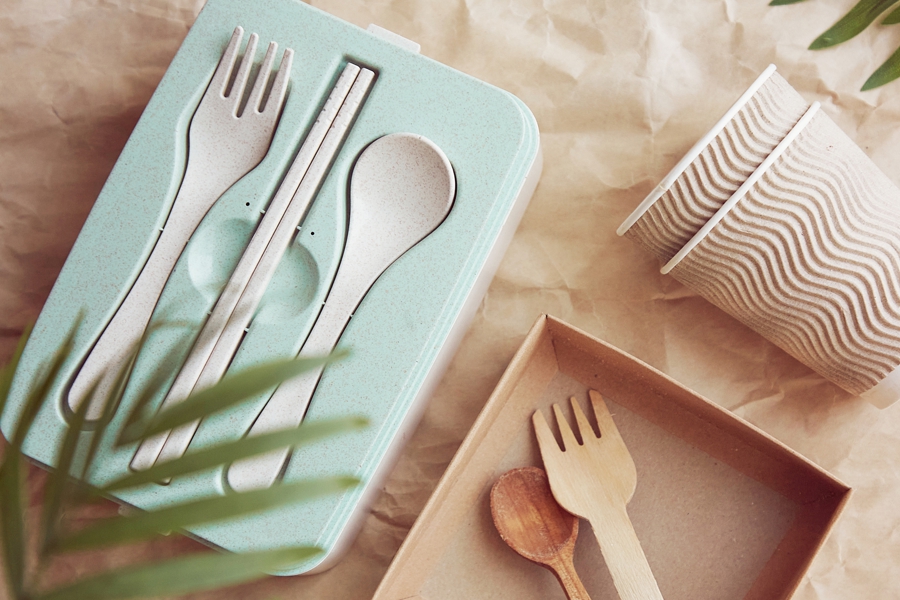Understanding Plant-Based Plastics in Sustainable Packaging

Plant-based plastics, also known as bioplastics, are an innovative and environmentally friendly alternative to conventional petroleum-based plastics. Derived from renewable resources such as corn, sugarcane or potato starch, bioplastics aim to reduce reliance on fossil fuels and minimise the environmental impact of packaging waste. As industries shift toward sustainable solutions, plant-based plastics are gaining popularity for their versatility, functionality and potential to reduce greenhouse gas emissions.
What Are Plant-Based Plastics?
Plant-based plastics are materials created using biological substances rather than petroleum. Unlike traditional plastics, which are derived from non-renewable fossil fuels, plant-based plastics are produced from biomass - organic matter sourced from crops, plants, and agricultural by-products.
Plant-based plastics fall into two main categories, each with distinct purposes and addressing different sustainability goals:
-
Biodegradable plastics are crafted to naturally decompose into harmless elements such as water, carbon dioxide, and biomass when exposed to specific conditions. This makes them particularly effective in reducing long-term waste in landfills, provided the right disposal infrastructure is available.
-
Non-biodegradable plastics, although not designed to break down, are manufactured from renewable plant-based resources rather than fossil fuels. These materials replicate the strength and versatility of traditional plastics, making them a sustainable alternative without compromising durability or performance.
One common type of plant-based plastic is Polylactic Acid (PLA), which is made from fermented plant sugars and widely used in food packaging, disposable cutlery, and cups.
Applications of Plant-Based Plastics
Plant-based plastics are widely used across industries, providing sustainable alternatives to conventional plastics. These applications demonstrate their versatility and ability to meet diverse needs while promoting environmental responsibility:
-
Food packaging frequently relies on plant-based plastics like PLA and PHA (polyhydroxyalkanoates). These materials are ideal for creating biodegradable food containers, wraps and trays, reducing plastic waste while maintaining food safety and freshness.
-
Retail packaging has embraced bioplastics for items such as eco-friendly plastic bags, blister packs and shopping bags. These alternatives are becoming increasingly common as retailers prioritise sustainability.
-
Medical packaging benefits from the use of bioplastics in disposable items like syringes and gloves. These materials meet the critical demands for sterilisation and sustainability in healthcare applications.
-
Agricultural applications make use of plant-based plastics in products like biodegradable mulch films and seedling trays. These solutions help reduce waste and promote sustainable farming practices.
-
Consumer goods such as toothbrushes, water bottles, and electronics casings are increasingly being crafted from plant-based plastics, catering to environmentally conscious consumers seeking greener alternatives.
Benefits of Plant-Based Plastics
Despite their many benefits, plant-based plastics face challenges that need to be addressed for wider adoption:
-
Higher costs can be a barrier, as producing plant-based plastics is often more expensive than conventional plastics. This is due to complex manufacturing processes and the reliance on agricultural resources.
-
Composting requirements limit the biodegradability of some plant-based plastics, such as PLA, which require industrial composting facilities to break down effectively. Unfortunately, such facilities are not available in all regions.
-
Competition with food supply arises when crops like corn and sugarcane are used for bioplastics. This can lead to concerns about land use and potential impacts on food availability and pricing.
-
Performance limitations include lower heat resistance and reduced durability compared to traditional plastics. These factors can restrict their use in applications requiring higher levels of strength or temperature tolerance.
Challenges of Plant-Based Plastics
Despite their advantages, plant-based plastics face several challenges that must be addressed for broader adoption:
Cost: Producing plant-based plastics can be more expensive than conventional plastics due to the complexity of manufacturing processes and reliance on agricultural resources.
Composting Requirements: Some plant-based plastics, like PLA, require industrial composting conditions to break down, which may not be available in all regions.
Competition with Food Supply: The use of crops for bioplastics can raise concerns about land use and its potential impact on food availability and pricing.
Performance Limitations: Plant-based plastics may have lower heat resistance or durability compared to traditional plastics, limiting their use in some applications.
Future Trends in Plant-Based Plastics
The future of plant-based plastics is promising, with ongoing research and innovation addressing existing challenges. Emerging technologies aim to create more cost-effective and high-performing bioplastics, making them viable for a broader range of applications.
Additionally, new sources of bioplastics are being explored, such as algae and agricultural waste, to reduce competition with food crops and enhance sustainability. Efforts to improve recycling and composting infrastructure will further support the adoption of plant-based plastics in global markets.
For more information on sustainable packaging solutions, contact Jacob White Packaging today. We are here to guide you towards innovative and eco-friendly packaging options tailored to your needs.

